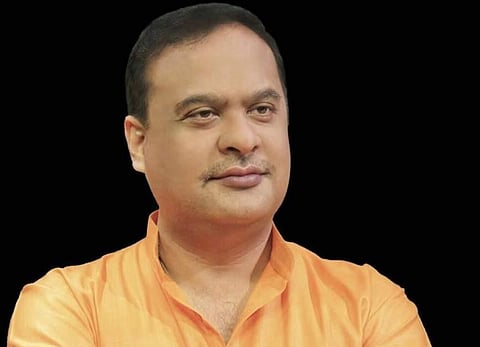

GUWAHATI: The basis for citizenship to illegal immigrants under the Citizenship (Amendment) Act (CAA) is religious persecution. However, going by what Assam’s Finance Minister Himanta Biswa Sarma says, any non-Muslim immigrant from Bangladesh, Pakistan and Afghanistan, who entered India on any grounds, will now be entitled to Indian citizenship.
Talking to a news channel in Delhi, Sarma said the beneficiaries of CAA would not be able to give evidence of their religious persecution in Bangladesh as they would have to go to the country and the police stations there were unlikely to give documents of religious persecution of minorities in the country. He said immigrants applying for citizenship had to submit three documents.
“People applying for citizenship under CAA will be required to submit documentary evidence that they came to India before December 31, 2014; that they are Hindu, Christian, Buddhist, Sikh, Parsi or Jain; and that they were citizens of any of the three countries,” Sarma said.
At the same time, he, however, said the Centre might use its agencies to internally find out if people applying for citizenship under CAA had faced religious persecution in the three countries.
The All Assam Students’ Union (AASU), spearheading the anti-CAA protests in the state, reacted sharply.
“We knew they were hoodwinking people by saying that religious persecution will be a basis for citizenship under CAA. We had been saying from before that they will give citizenship to the immigrants without making them submit any documents,” AASU general secretary Lurinjyoti Gogoi told this newspaper.
“The documents of religious persecution have to be issued by Bangladeshi authorities. Bangladesh will never do that. If it does, it will establish that there had been religious persecution on its soil and that will tarnish the country’s image globally,” he said.
The AASU leader alleged that by “imposing” the illegal immigrants on Assam, the BJP was trying to consolidate its vote bank.
The CAA beneficiaries in Assam are primarily those who came between 1971 and 2014 from Bangladesh. A good number of people, who or whose parents came to Assam before March 24, 1971 but were left out of the National Register of Citizens (NRC) as they failed to submit requisite documents, cannot be CAA beneficiaries. So, their citizenship fate hangs in the balance.